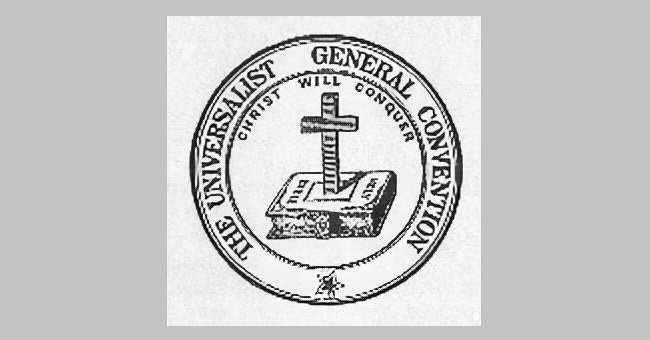by Mike Roberts, Church Historian
People both within our Unitarian Universalist family and in the rest of the world often express doubt or surprise when it is mentioned that the roots of Universalism rest deeply in Christian theology. From the time of its origins until the 1960s, Christianity was the foundation of the faith. Universalism was always considered a “liberal” church partially due to its commitment to social change and certainly due to its rejection of eternal damnation. To better understand the scope of that commitment to Christian ideals, it might help to hear the words of one of our ministers as he spoke on a divisive issue of his day. The minister is Reverend A. B. Beresford, who served the church in Walnut Hills from 1909 to 1920. Excerpts of this sermon were printed in the Cincinnati Enquirer of September 8, 1919.
Rev. Beresford said:
Three articles in Christ’s program applying to modern issues are that sympathy must replace suspicion between employer and employee, there must be a new race of home owners and home lovers—not mere lodgers in flats and apartments, and there must be a new faith and practice of the value of the plain virtues-these are the life of men and nations.
In a large way, the church has not obtained leadership among the wage earners. This class of people, struggling amid the temptations and tribulations of daily necessities, feel and say ‘The church has no message for us.’ A few will admit that the church is for women and children, but not for men. A few unsparingly condemn the church because they fancy it is the friend and social adjunct of the capitalistic class and is the friend of parasites, plunderers and oppressors.
This indictment cannot be sustained in any of its counts. The Gospel is for this world. It is the best friend of the wage earner. It has a living message for the industrial crisis in the middle of which we now are. Christ had nothing to say on machine tools, factories, telephones or locomotives, but knew men in their many-sided human relationships, especially as masters and servants, that is as capital and labor.
Authorities on industrial conditions tell us there will be organized labor on the one hand and organized capital on the other. But these two giants should be friends, not enemies. Sympathy should replace suspicion. Like a ship’s crew, men and officers should be bound together in the same fate and fortune.
There must be more constant contact between employers and employees. The purpose of this contact is not to make up for small wages or insufficient pay, but to replace suspicion with sympathy, to hear grievances and right wrongs and do all things that will help business. The employers should have a sincere interest in the personal welfare of their employees, and show that interest in real ways.
The commonest sailor does not work for the captain but with the captain. So in times of peril the captain is the last to leave the ship. So men should work not for the boss but with the boss, and the boss should work with the men.
Every family has its crises but when there is love there always is an acceptable settlement of the difficulty. It can be likewise with our vast family—the working world.
In strikes those who throw the rocks and apply the torch are those who own no homes. Let there be more homes.
‘Never was there a time when the church had as great an opportunity or responsibility as the present’ said Rev. Jacob W. Kapp in a sermon on The Church For the Times at First English Lutheran Church yesterday morning.
The church must be ready now to answer the demands for an aggressive God loving and human loving organization, in the ordinary sense of the word. It does not depend on its machinery or upon its externals for its existence. God is the church’s power and wisdom.
It is true that the day of miracles is past, but, on the other hand, it is true that the church must show results that are greater than can be accomplished by ordinary human effort. The power of God must be evident in its life. This power is promised and we of the church but need to fulfill the conditions, and we are assured that the church will be a conquering, victorious power in our land.
Reverend Beresford’s solutions to the labor problems of the day were to look to the teachings of Jesus. As he explored these labor/management issues that were deeply troubling a post war nation, he saw the church and its Christian faith as the source of answers to conflict. The commitment to social change and consideration of the needs of the working class were certainly in line with the Universalist reputation as a liberal and reformist movement. However, this does beg the question, if one were to rework this sermon in the framework of the nation’s current divisive issues— Black Lives Matter, abortion, LGBTQ rights, voting rights and many more— where would the answers lie for UU’s? While many members still hold to Christian belief, is that sufficient to serve as a UU source of solutions to our troubled nation’s issues? Do the answers come from inside the hearts and minds of our membership with no foundation in theology? Do the answers lie in our Seven Principles? What holds us together as we work as a unit to contribute solutions for our nation’s problems? It sounds like a topic for a sermon.
Next month we will examine an order of service from a time when the message of Christ was a prominent feature of Sunday services.
Image: Seal of the Universalist General Convention, to which our congregation belonged.
Image source: Wikipedia.

